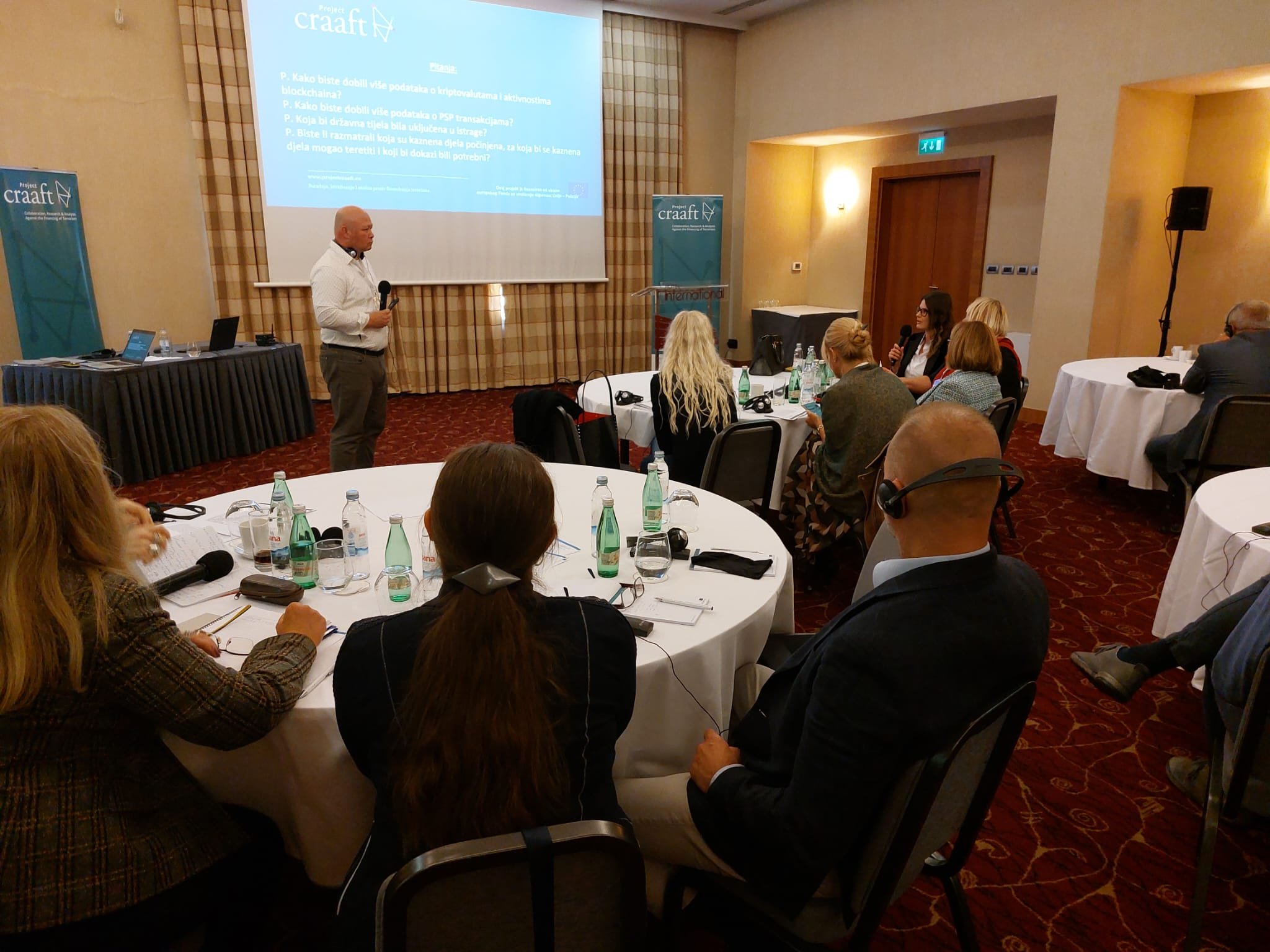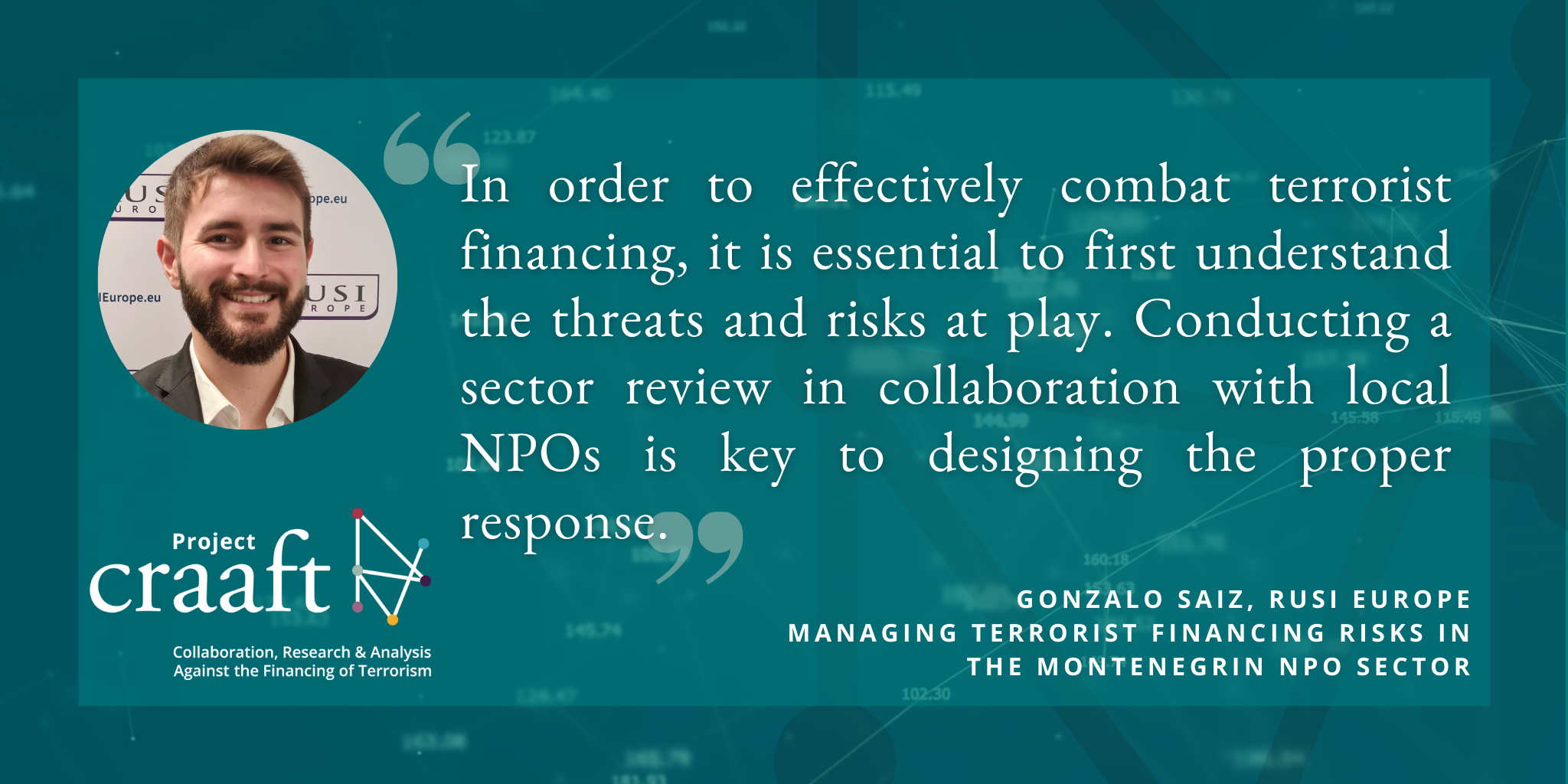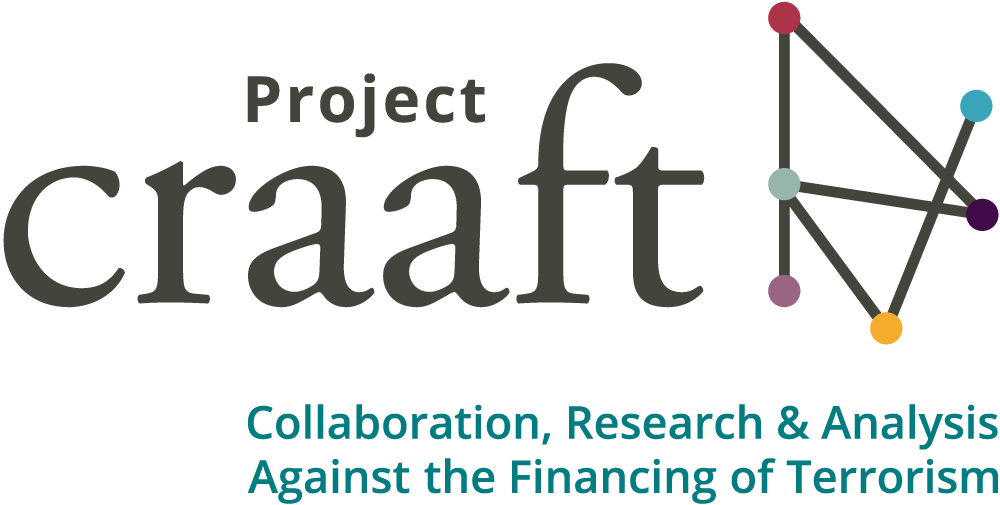
Project Workshops
Stay up to date on all our Workshops that we have held over the course of the project
FinTech-Enabled Terrorism Financing. Our most popular workshop offering –which we delivered in Latvia, Serbia, Georgia, Lithuania and Slovakia – brought together the public and private sectors to discuss risks and opportunities posed by new technologies, and to promote cross-sector collaboration.
CTF in Financial Centres. Some jurisdictions face unique terrorist financing risks – for Monaco and Lichtenstein we tailored our workshop to help them boost their public-private partnerships.
Preventing Terrorism Financing in the Not-for-Profit Organisation (NPO) Sector. How should states effectively mitigate terrorism financing risk in their NPO sector, in-line with international standards and best practices? We brought the very best experts along with us to answer just this in Poland, Bulgaria, Montenegro and Romania.
Information Sharing for Prosecutors and FIUs. Polish and Croatian authorities benefited from a “war game” scenario to sharper their CTF skills in this interactive workshop programme.

FinTech-Enabled Terrorism Financing: Lessons for Spain
On 24 May 2023, Project CRAAFT convened a workshop in Madrid for Spanish stakeholders on the terrorism financing (TF) challenges and counter-terrorism financing (CTF) opportunities presented by the country’s active FinTech sector.

FinTech-Enabled Terrorism Financing: Lessons for Cyprus
On 25 April 2023, Project CRAAFT convened a workshop in Nicosia for Cypriot stakeholders on the terrorism financing (TF) challenges and counter-terrorism financing (CTF) opportunities presented by the country’s FinTech sector, with Cyprus trying to position itself as a world leader in this space.

Information-Sharing Workshop for Prosecutors and FIU: Croatia
On 20 September 2022, Project CRAAFT held an in-person workshop for law enforcement, FIU and prosecutors in Zagreb. The workshop gathered representatives of public institutions to discuss the terrorist financing risks brought by the emergence of new technologies, and explored the opportunities for more effective CTF measures brought upon by FinTech.

GLOBSEC Regional Conference of the FIUs: The Role of Fintech in AML/CFT policies
GLOBSEC, in cooperation with the Financial Intelligence Unit (FIU) of Police Force Presidium organised a two-day regional conference in Bratislava bringing together representatives from FIUs of the V4 – Poland, Slovakia, Czech Republic and Hungary, in addition to representatives from Austria, Slovenia and Ireland.

Information-Sharing Workshop for Prosecutors and FIU: Poland
On 13 September 2022, Project CRAAFT held a workshop in Warsaw for Polish representatives from the FIU, Prosecutor’s Office, and other public sector stakeholders on terrorist financing risks of new technologies. Our researchers and supporting financial crime experts presented case studies of TF abuse of the FinTech sector to address the current threat landscape and the need for effective cross-sector collaboration.
Managing Terrorist Financing Risk in the Romanian NPO Sector
From 14–15 June 2022, Project CRAAFT convened a workshop for Romanian stakeholders on protecting the Romanian non-profit organisation (NPO) sector from abuse for terrorism financing (TF). Our expert trainers delivered presentations on the international standards set out by the Financial Action Task Force (FATF), tailored to the particular context of Romania’s NPO sector and its TF risks. This workshop was also successful in bringing together representatives of the country’s public sector, financial institutions and NPOs to provide them a platform to interact and engage in dialogue to exchange views, needs and concerns. Recognising Romania’s ongoing mutual evaluation by MONEYVAL, with an on-site visit scheduled for September 2022, this workshop constituted a response to the Romanian FIU’s request to improve the understanding of TF risks and responsibilities in relation to NPOs across the three sectors.

FinTech-Enabled Terrorism Financing: Lessons for Slovakia
On 1-2 June 2022, Project CRAAFT convened a workshop in Bratislava for Slovak stakeholders on the terrorism financing (TF) challenges and counter-terrorism financing (CTF) opportunities presented by the country’s active FinTech sector. Workshop presentations delivered by leading financial crime experts in the FinTech industry, as well as researchers from RUSI, focused on helping participants to anticipate how their services might be abused by terrorists or their supporters operating abroad. This is a crucial challenge for a country such as Slovakia, which does not face a substantial terrorist threat within its own borders. By bringing together representatives of the FinTech industry and the public sector, participants witnessed first-hand the advantages and creative synergies generated through public–private collaboration to tackle TF.

Managing Terrorist Financing Risks in the Montenegrin NPO Sector
From 12–13 May 2022, Project CRAAFT convened an online workshop for Montenegrin stakeholders on protecting the Montenegrin non- profit organisation (NPO) sector from abuse for terrorism financing (TF). This workshop reinforced the international standards set out by the Financial Action Task Force (FATF) on TF abuse of NPOs, and by bringing together representatives of the public sector, financial institutions and NPOs themselves, created space for open dialogue between these actors where there is rarely an opportunity to do so.

FinTech-Enabled Terrorism Financing: Lessons for Lithuania
On 13-14 April 2022, Project CRAAFT convened a workshop in Vilnius for Lithuanian stakeholders on the terrorism financing (TF) challenges and counter-terrorism financing (CTF) opportunities presented by the country’s large FinTech sector, among the most active in Europe.

Managing Terrorist Financing Risk in the NPO Sector
From November 30th through December 1st, the Project CRAAFT team hosted an online workshop for various Polish stakeholders. The workshop centred on aspects of protecting the Polish non-profit organisation (NPO) sector from abuses for and vulnerabilities to terrorism financing (TF) and involved a combination of interactive lectures and breakout room discussions.
